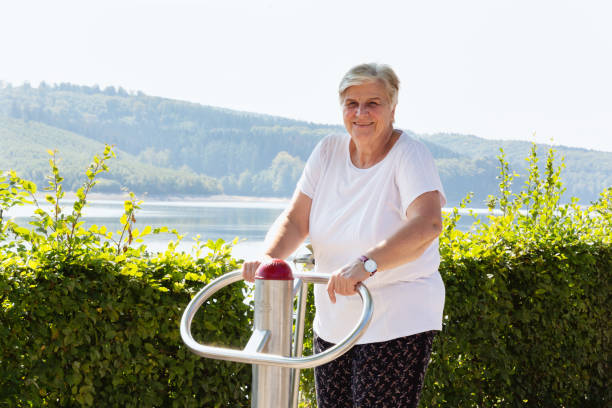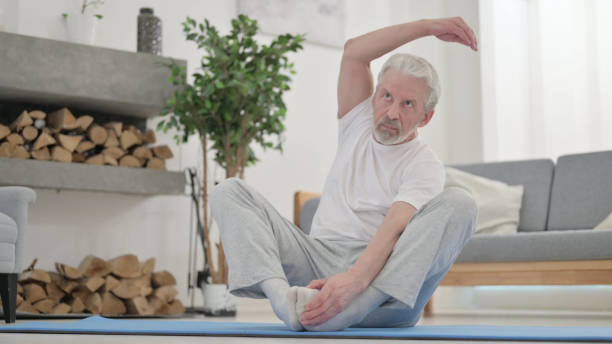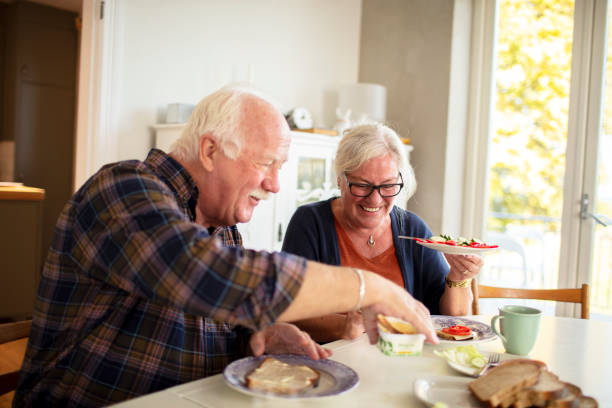Introduction

Living with Parkinson's Disease (PD) can be difficult. It affects mobility, quality of life, and overall well-being. Managing PD symptoms is essential to maintain an active lifestyle and enjoying the things you love.
In this blog post, we'll share some tips on how to manage the balancing act of living with Parkinson's disease and maintain mobility and quality of life. We'll discuss the importance of exercise, diet, managing stress, and communication with your doctor. With lifestyle changes and medical treatment, you can manage the balancing act of living with Parkinson's disease. Let's explore all you can do to stay active, healthy, and happy despite PD.
What is Parkinson's Disease
Parkinson's Disease (PD) is a neurological disorder that worsens over time and causes shaking slow movements, and limb stiffness. Though it is most common in older adults, it can also affect younger individuals. PD affects an individual's ability to walk, balance, and maintain mobility.
Managing Mobility & Quality of Life with Parkinson's Disease
Managing the balancing act of mobility and quality of life is key to living with PD. As the disease progresses, staying active and maintaining independence can be difficult. Exercise is essential for maintaining strength and movement, but finding a way to do so safely can be challenging.
Collaborating with a physical therapist can assist you in recognizing and executing advantageous techniques. Additionally, staying connected to your support network and utilizing assistive devices can help you remain independent.
Key Strategies for Managing Mobility & Quality of Life
Some key strategies that can be used to maintain mobility and quality of life include:
1. Exercise

Exercise is a key component in managing the balancing act of living with Parkinson's Disease (PD). Regular exercise can improve mobility, reduce stiffness and strengthen muscles. Exercise helps to manage the symptoms of PD, promoting an active lifestyle. It can also help reduce fatigue and improve overall quality of life.
People living with PD should aim to incorporate aerobic exercise into their daily routines. This includes activities such as walking, jogging, swimming, or cycling. It is important to start slowly and gradually increase intensity over time. Alternative exercises such as tai chi, yoga, or Pilates are excellent options for people unable to perform traditional exercises.
Regular exercise can also help to improve balance and reduce the risk of falls. Balance training is particularly important for individuals with PD, as it helps to improve coordination and mobility. Balance exercises should be done at least twice a week, focusing on strength-building exercises such as standing on one leg, squats, and lunges.
Diet

Managing the symptoms of PD is important, and diet is a key factor in achieving this. Consuming a balanced diet that contains essential nutrients can decrease inflammation, enhance energy levels, and uplift mood. Incorporating plenty of fruits, vegetables, whole grains, lean proteins, and healthy fats into your meal plan is essential for optimal health. Limiting processed foods, sugar, and unhealthy fats is also important, as these can aggravate PD symptoms.
In addition to eating a healthy diet, supplementing with vitamins and minerals can also benefit people with Parkinson's Disease. Research suggests that taking vitamin D3 supplements may help to improve motor control and reduce fatigue associated with PD." Eating foods rich in omega-3 fatty acids like salmon, walnuts, and chia seeds may potentially decrease inflammation."
Finally, staying hydrated is important for managing the symptoms of PD. "Consuming a minimum of eight glasses of water per day can enhance energy levels and support physical performance." Additionally, avoiding alcohol and caffeine should be part of a healthy diet for people with PD.
Overall, managing the balancing act of mobility and quality of life with Parkinson's Disease requires a commitment to lifestyle changes such as exercise, diet, and supplementation. Combining these strategies will help create an environment that encourages active movements, improved moods, and overall quality of life. With the right support and guidance, living a full and active life while managing PD is possible.
3. Support Network
Having a strong and supportive network of family, friends, and health professionals is essential for managing the symptoms of PD. Being able to talk openly about your experience with Parkinson's Disease can help you to feel less isolated and more connected to those around you. It can also provide an opportunity to ask questions, share concerns and receive advice.
Finding a support group in your local area is also a great way to connect with others with similar experiences Engaging in activities like tai chi, yoga, or Pilates classes can promote physical and mental well-being.
In addition to providing emotional support, family members and friends can help with practical tasks such as transportation, shopping, and housekeeping. This can help to reduce stress and provide an opportunity for better self-care.
4. Managing Stress
Stress can harm the symptoms of PD, and it is important to find ways to manage stress levels. To manage anxiety, improve sleep, and reduce fatigue, you can try relaxation techniques like deep breathing, progressive muscle relaxation, or visualization. Exercise interventions can also help release endorphins known to reduce stress levels.
Taking time to do something you enjoy, such as reading, listening to music, or spending time in nature, can also help with stress management. It is also important to get adequate sleep and rest as this helps to reduce fatigue and boost energy levels.
Managing the balance between mobility and quality of life with PD requires dedication and commitment to lifestyle changes. With the right support, guidance, and a healthy dose of self-care, it is possible to live an active and fulfilling life with PD.
Benefits of Exercise for People with Parkinson's Disease
There are some key benefits of exercise for managing Parkinson's disease:
-
Exercise can help to improve Balance impairments , Impaired balance and posture, reducing the risk of falls.
-
It also helps to maintain muscle strength and joint range of motion, making it easier to perform everyday tasks.
-
Exercise can also help with cognitive Physical function, as physical activity stimulates blood flow and brain activity.
-
Exercise can help to reduce stiffness and spasms, making movements easier.
-
Studies have demonstrated that engaging in routine physical activity can boost your mood and reduce your stress and anxiety levels.
6 Medication-Free Ways to Feel Better with Parkinson's Disease
Here are six ways to manage your Parkinson's disease without medications:
1. Exercise regularly
Exercise is one of the best forms of self-care for people with Parkinson's Disease. It helps improve balance, coordination, and muscle strength and reduces stiffness and depression. Try walking, swimming, or yoga to help you stay active and healthy.
2. Get plenty of rest
Sleep is important for everyone, especially those with Parkinson's disease. Make sure you sleep well at night and take regular naps during the day to help your body heal and regenerate.
3. Stay socially connected
Spending time with family and friends can help keep your mood elevated and symptoms at bay. Attend social gatherings or support groups to stay connected with others who understand what you are going through.
4. Eat healthily
Consuming a well-rounded meal plan that includes a variety of fruits, vegetables, whole grains, and lean proteins may aid in lessening the intensity of Parkinson's disease symptoms. To find the meal plan that suits you best, consult your doctor or a nutritionist.
5. Relax
Stress can worsen your symptoms, so taking time out of your day to relax and unwind is important. Try meditation, deep breathing, or mindfulness exercises to help reduce anxiety and depression associated with Parkinson's disease.
6. Find new hobbies
Keeping your mind active can help with motor skills, memory, and mood. Take a hobby such as painting, gardening, or photography to keep your mind engaged and body healthy.
FAQ's
How do you maintain mobility with Parkinson's disease?
The best way to maintain mobility with Parkinson's disease is to stay active and regularly exercise. Exercise can help improve balance and coordination, reduce stiffness, and even enhance mood. Make sure to speak with your doctor before starting any Physical activity program, as there may be certain activities you should avoid depending on the Disease severity of your symptoms.
Why is balance important for Parkinson's disease?
Balance is important with Parkinson's disease because it helps prevent falls and reduces the injury fall risk. People with PD often experience balance issues, so exercising regularly and going for physical therapy can help improve balance and coordination. Additionally, wearing supportive shoes or walking aid can provide extra support.
What is lifestyle management for Parkinson's disease?
Lifestyle management for Parkinson's disease is a holistic approach to managing the disease. This includes following healthy lifestyle habits such as eating a balanced diet, getting enough rest, and exercising regularly. Additionally, it includes activities that can help reduce stress, boost mood, and increase socialization. Speaking with your doctor about what lifestyle management plan is best for you is important.
What is the best mobility aid for Parkinson's?
The best mobility aid for Parkinson's will depend on the individual's needs. A walking cane or walker can provide extra support and stability when walking, while a wheelchair or scooter can help with longer distances. Some say that friction-reducing sheets and sleepwear sets are the best Parkinson’s aid they have found. Consulting with your doctor or physical or occupational therapists would be beneficial in finding the most suitable course of action.
How does Parkinson's disease affect mobility?
Parkinson's disease can affect mobility in several ways. Common symptoms such as tremors, muscle stiffness, and poor balance can make it difficult to move around. Additionally, Parkinson's disease can cause fatigue which can further reduce mobility. To help manage these symptoms, it's important to stay physically active and stick to a regular exercise routine.
What are the balance outcome measures for Parkinson's disease?
The balance outcome measures for Parkinson's disease can include the Timed Up and Go Test (TUG), the Berg Balance Scale, and the Clinical Test of Sensory Interaction on Balance (CTSIB). These tests measure a person's balance, coordination, strength, and mobility. Results from these tests can be used to create an individualized treatment plan and help track a person's progress over time.
Is Parkinson's a balance disorder?
Parkinson's is a disorder that does affect balance. People with PD often experience balance issues due to their motor symptoms, such as tremors, stiffness, and slowness of movement. Exercise can help improve balance and coordination while wearing supportive shoes or walking aid can provide extra support when needed.
Conclusion
Managing Parkinson's disease can be a balancing act, but it is possible to maintain mobility and quality of life. Engaging in regular physical activity, consuming a well-rounded diet, and discovering new hobbies can aid in reducing symptoms and enhancing overall wellness. Additionally, talking to your doctor about the best lifestyle management plan for you and using the right mobility aids are important factors in managing PD. With the right support, it is possible to live a full and active life with Parkinson's disease.

